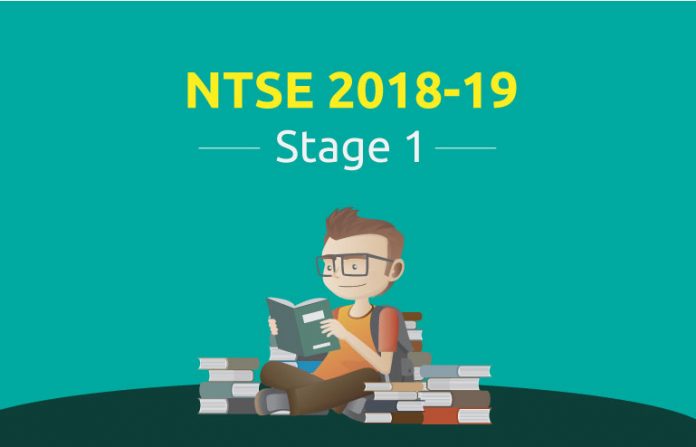The National Talent Search Exam (NTSE) aims to identify—and provide scholarships to—talented students studying in Class X. The exam is conducted in 2 stages: Stage 1 and Stage 2, each consisting of two tests: Mental Ability Test (MAT) and Scholastic Aptitude Test (SAT). In this blog, you can find out all you need to know about Stage 1 of NTSE 2018-19.
The scholarship is awarded for pursuing courses in Science and Social Science up to the doctoral level; and in the case of professional courses (like Medicine and Engineering) up to the second-degree level, subject to the fulfilment of certain conditions. A total of 1,000 scholarships are awarded in the country, with reservation of 15% for SC, 7.5% for ST, 27% for other backward classes, and 4% for candidates with benchmark disabilities.
NTSE 2018-19: Stage 1
Stage 1 of the NTSE comprises a state-level examination, conducted by the States/Union Territories themselves. Each of them has the autonomy to lay down their own norms for determining the eligibility of the candidates. This examination is primarily used to recommend a given number of candidates for the second-level test that is conducted by the NCERT. The number is based on the enrolment of students in Classes IX and X in the various States/UTs. The candidates are then recommended on the basis of their performance in the Stage 1 exam.
NTSE 2018-19: Schedule
Date: November 4, 2018 (November 3 in Nagaland, Mizoram, Meghalaya, and Andaman & Nicobar Islands)
Time: 9:30 to 11:30 a.m. (MAT) & 1.30 to 3.30 p.m. (SAT)
NTSE 2018-19: Eligibility
Students studying in Class X in any recognized school are eligible to sit for the Stage 1 exam in the State in which their school is located. There is no domicile restriction. Students registered under Open and Distance Learning programs are also eligible, provided they are under 18 years of age (as on July 1, 2018). However, the States have the authority to impose additional eligibility conditions, like minimum percentage of marks in the previous annual exam.
NTSE 2018-19: How to Apply
Students are advised to keep a look out for advertisements in newspapers, and for circulars in their school by the respective State/Union Territory, for details. Any other information/query about the State-level examination may be obtained from the Liaison Officers of the respective State/UT agencies. The filled-in application, duly signed by the Principal of the school, must be submitted to the State Liaison Officer before the due date (as advertised/circulated by the State/UT concerned). The fees and medium of examination are also decided by the respective State/Union Territory.
NTSE 2018-19: Results
The State/Union Territory prepares a merit list of candidates securing the minimum qualifying marks in both the tests separately, which are 40% (General and OBC category candidates) and 32% (SC/ST/physically challenged candidates).
The results of the State-Level Talent Search examination are declared in January/February by the States/UTs themselves. It is to be noted that the exam is used only to recommend candidates for the second-level NTS examination conducted by the NCERT. The marks of the State-Level Examination are not added to the National Level Examination for awarding of scholarships.
NTSE 2018-19: Syllabus for MAT
The Mental Ability Test is of 120-minutes’ duration; and has 100 MCQ-type questions. Four options are provided for each question, of which only one is the correct answer. Each question carries 1 mark. There is no negative marking. Majority of the questions asked are from topics like:
- Alphabet & Number Tests
- Analogy (Verbal and Non-Verbal)
- Blood Relations
- Calendars and Clocks (Time problems)
- Coding–Decoding
- Directions
- Missing Characters or Numbers
- Ranking and Arrangements
- Series (Verbal and Non-Verbal)
- Venn Diagrams
NTSE 2018-19: Syllabus for SAT
The Scholastic Aptitude Test too is 120-minutes long; and has 100 MCQ-type questions, as well. Each question has 4 answer options provided, of which one is correct. Each question carries 1 mark. There is no negative marking. The break-up of these 100 questions is as follows:
- Science: 40 questions
- Social Science: 40 questions
- Mathematics: 20 questions
The syllabus of these subjects is the collection of all topics from the Classes IX & X NCERT textbooks.





















































